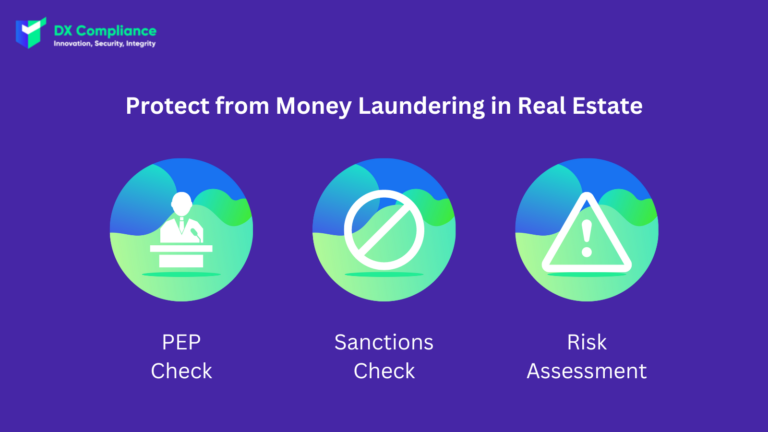7 November 2022, 14:00
Tagline
7 November 2022, 14:00
Tagline
The real estate sector can provide an environment to safely turn money earned illicitly into clean funds and back into the legal economy. It allows the criminals to enjoy the asset by successfully camouflaging illicitly earned funds. Money laundering can be done by using cash, shell companies and trusts to cover their identities when they purchase properties.
There are many reasons why real estate laundering is chosen over other ways of laundering money. It provides a façade of respectability, legitimacy and normality and the asset of land or property is likely to appreciate over time. Transactions through real estate are usually high-value, allowing illicit actors to launder large sums in one transaction.
As regulations adapt to criminal activity, the criminals continually evolve to find new ways around these. Real estate is frequently sold and re-sold in fairly quick succession, so this could make it less suspicious when a criminal engages in similar behaviours in order to layer laundered funds. However, money laundering can occur at any of these stages:
Money laundering happens across the globe, but it is more likely to occur in the real estate industry if the region does not have robust regulation in place. This Economist article outlines how this can occur, set in Dubai, where there is a relaxed attitude towards dirty money. The UAE scored poorly on the index of money laundering created by Basel Institute on Governance.
Since then the UAE have implemented AML regulations. Real estate companies, brokers, agents and other professionals involved in the transaction of property must follow these regulations to ensure AML compliance, such as the registering with GoAML, the software to standardise and digitise reports of money laundering risks.
In general, the Financial Action Task Force (FATF) Recommendations on Money Laundering and the nine Special Recommendations on Terrorist Financing are considered the international standard for anti-money laundering and terrorist financing regulations.
In Recommendation 22, the FATF also specifically mentions real estate. These are classified as designated non-financial businesses and professions (DNFBPs). As such, they are subject to AML supervision. Therefore, member states are required to screen companies operating in the real estate market using customer due diligence and AML investigation procedures.

As a Gold Industry player, it is important to perform proper due diligence and KYC. This includes various activities, which we have compiled below.
PEP (Politically exposed Person) is not in all jurisdictions defined in the same way. But in general, Politically exposed Persons (PEPs) are persons who hold or have held an important public function. This function may, for example, give them influence over the use of taxpayer funds or the awarding of contracts by state-owned enterprises. As such, they are considered by the Financial Action Task Force to be a category of individuals more vulnerable to bribery, corruption, and money laundering than most.
Within the sanction screening, you can check for targeted financial sanctions (TFS). Individual countries and multinational organizations (e.g., the EU and the United Nations) impose sanctions to pressure other countries or organizations to change their behavior. Sanctions can be directed against individuals, specific companies, or entire nations.
There are 2 main types of financial sanctions: Asset freezing and the prohibition to offer funds and services.
The aim of a client risk assessments is to identify and assess the money laundering (ML) and/or terror financial (TF) risks identified at individual client level.
Therefore, the Risk Based Approach is important to implement in your organization. As a core principle of AML compliance the so called risk-based approach (RBA) refers to adjusting the level and type of compliance work done (frequency, intensity and/or amount), to the risks present.
DX Compliance is an AML and Compliance firm helping our clients identify, prevent and report financial crime. DX Compliance help Banks, FinTech’s and Payments Providers to continually monitor their risk and detect the threat of money laundering to ensure compliance and reduce fines.
Auteurs of the real estate industry are able to can screen people and businesses in seconds with CheckAML.
CheckAML is the most efficient and cost-effective way of carrying out money laundering checks in real estate sector. We offer the only instant AML solution with full PEP & sanctions screening, ongoing monitoring and customer risk assessment worldwide. This helps to ensure Client Due Diligence for legal practices.
Our data and coverage is global, real-time and reliable, all your checks are automatically saved, for audits and regulatory visits. So everything you need we’ve got you covered.
Curious? Please contact our experts!

08.08.2022
An overview of recent AML developments in the UAE.
Get access
15.10.2021
The introduction of 6AMLD regulations aims to reduce financial crimes.
Get access
27.07.2021 AML Compliance
Uncovering the PEP and Sanctions Lists and Global Regulation
Get access